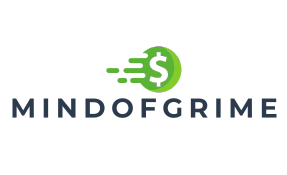Table of Contents
ToggleImagine waking up one day and realizing you don’t owe anyone a dime. No more late-night calculations of how to juggle bills or that sinking feeling when the credit card statement arrives. A debt-free lifestyle isn’t just a dream; it’s a ticket to financial freedom that many folks are cashing in on.
Living without debt means more than just having a lighter wallet. It’s about reclaiming control over your life and finances. Picture splurging on that vacation without worrying about how it’ll affect next month’s budget. With the right strategies and a sprinkle of humor, anyone can kick debt to the curb. So let’s dive into the world of financial independence and explore how to make that dream a reality. After all, who wouldn’t want to live life without the shadow of debt looming over them?
Understanding The Debt-Free Lifestyle
A debt-free lifestyle signifies a financial state where individuals eliminate all outstanding debts. Achieving this lifestyle often involves disciplined budgeting, conscious spending, and strategic debt repayment plans.
What Is A Debt-Free Lifestyle?
A debt-free lifestyle results in living without financial obligations such as loans or credit card balances. The concept revolves around spending only what one earns, emphasizing financial responsibility and independence. Individuals pursuing this lifestyle prioritize saving for emergencies and future goals over accumulating debt. They allocate funds to investments instead of interest payments. Ultimately, fostering a debt-free mindset encourages financial literacy and empowerment.
Benefits Of Living Debt-Free
Living debt-free offers numerous advantages. Financial freedom stands as the primary benefit, allowing individuals to use their income for needs and wants rather than debt repayment. Stress reduction occurs as debt-related anxiety diminishes. Additionally, improved credit scores often follow from a debt-free status, enhancing borrowing potential in the future. Flexibility in financial choices also increases; individuals can make life decisions, such as travel or career changes, without financial constraints. Building wealth becomes easier, as extra funds can be directed toward savings and investments.
Steps To Achieve A Debt-Free Lifestyle

Achieving a debt-free lifestyle requires discipline and strategic planning. Below are key steps to help individuals move toward financial freedom.
Create A Budget
Creating a budget lays the foundation for financial control. Individuals categorize their income and expenses to identify spending patterns. Tracking daily purchases helps highlight areas for savings. Setting financial goals, both short-term and long-term, directs focus and motivation. Revising the budget regularly ensures it remains relevant as circumstances change.
Build An Emergency Fund
Building an emergency fund is crucial for financial stability. Aim to save three to six months’ worth of expenses to cover unexpected costs. This fund provides a safety net, reducing reliance on credit cards during emergencies. Automating savings can make accumulating funds more manageable. Regular contributions, even small ones, accumulate over time and enhance financial security.
Pay Off Existing Debts
Paying off existing debts requires a strategic approach. Begin with high-interest debts to save on interest payments. Use methods like the avalanche or snowball approach to prioritize debts. Individuals should allocate any extra funds toward debt repayment aggressively. Consistent payments, combined with a focused strategy, lead to eliminating debt efficiently.
Maintaining A Debt-Free Lifestyle
Maintaining a debt-free lifestyle requires consistent effort and strategic planning. Smart spending and investing play crucial roles in achieving long-term financial health.
Smart Spending Habits
Smart spending habits enhance financial stability. Individuals prioritize needs over wants to reduce unnecessary expenses. They create shopping lists to avoid impulse purchases. Utilizing cash for transactions helps control spending limits. Moreover, adopting a frugal mindset encourages finding bargains and discounts. Organic food purchases, for instance, can be substituted by buying seasonal produce. Engaging in community activities often provides free entertainment. Tracking expenses through budget apps enables an understanding of spending patterns. These practices collectively promote a culture of mindful financial choices.
Investing For The Future
Investing for the future solidifies financial security. Individuals allocate savings to various investment vehicles, such as stocks, bonds, and mutual funds. Diversification minimizes risk while maximizing potential returns. Starting to invest early often leads to better earnings through compound interest. Regular contributions to retirement accounts, like 401(k)s or IRAs, enhance long-term growth. Educating oneself about market trends fosters informed investment decisions. Consulting with financial advisors often paves the way for tailored investment strategies. Establishing clear financial goals directs investment efforts effectively. These strategies empower individuals to build wealth over time while maintaining a debt-free lifestyle.
Common Challenges In Pursuing A Debt-Free Lifestyle
Living a debt-free lifestyle presents several challenges. Navigating these obstacles enhances the journey toward financial independence.
Overcoming Temptation
Managing spending urges can be difficult. It’s essential to identify triggers that lead to impulse buys. Creating a budget helps set limits on discretionary expenses. Developing a list of needs versus wants fosters mindful shopping habits. Individuals may consider designating shopping days or activities that don’t involve spending. Avoiding environments filled with temptation, such as malls or online sales, mitigates the risk of overspending. Rewarding oneself occasionally for achievements in budget adherence reinforces positive behavior without derailing progress.
Dealing With Unexpected Expenses
Unexpected costs pose significant challenges when striving for a debt-free lifestyle. Issues, such as car repairs or medical bills, can derail budgets quickly. Establishing an emergency fund is crucial for mitigating these situations. Regularly contributing to this fund prepares individuals for life’s uncertainties. Using savings to cover unexpected expenses instead of credit allows continued progress toward financial goals. Staying focused on maintaining budget discipline during these times supports long-term financial health. Consulting with financial experts can also provide valuable strategies for managing unforeseen costs efficiently.
Embracing a debt-free lifestyle opens the door to financial freedom and personal empowerment. By prioritizing disciplined budgeting and strategic spending, individuals can reclaim control over their finances and reduce stress. The journey may present challenges but with consistent effort and smart planning, it’s entirely achievable.
Investing in financial literacy and maintaining a focus on savings can lead to a more secure future. As they navigate this path, individuals should remember that each step taken toward debt freedom brings them closer to a life filled with opportunities and peace of mind. Ultimately, the rewards of living debt-free extend beyond finances, enriching overall well-being and life satisfaction.










